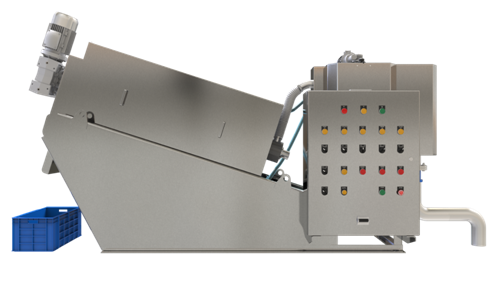Faecal Sludge Management
Faecal sludge management (FSM) is the collection, transport, and treatment of faecal sludge from pit latrines, septic tanks or other onsite sanitation systems.
Faecal sludge is a mixture of human excreta, water and solid wastes (e.g. toilet paper or other anal cleansing materials, menstrual hygiene materials) that are disposed of in pits, tanks or vaults of onsite sanitation systems. Faecal sludge that is removed from septic tanks is called septage.
Enquiry NowWhere FSM are required ?
FSM is required in densely populated areas where a proportion of the population is not connected to a sewerage network, and pit latrine coverings and reconstruction are not possible. This is the situation in most urban areas in developing countries, but such services are also used in developed countries where sewerage systems are unavailable. FSM services are typically provided by formal and informal private sector service providers, local governments, water authorities and utilities. However, FSM services are often unavailable in many developing countries, or are often informal, irregular, unhealthy, and insecure if they are available. This can cause surface water and groundwater pollution, the spread of pathogens in the environment and adversely affect public health. This can result in incredible services with relatively high costs in the homes they need.
Faecal sludge collection services can be made available on a scheduled basis or on a call-for-service basis (also known as on-demand, on-request or non-scheduled services). The collected faecal sludge may be transported to treatment plants using a vacuum truck; a tank and pump mounted on a flatbed truck; a small tank pulled by a motorcycle; or in containers on a hand cart. Mobile or permanent transfer stations can be used to improve the efficiency of faecal sludge transportation by transferring the waste to larger tankers for haulage to treatment. The wider use of multiple decentralized sludge treatment facilities within cities (to avoid long haulage distances) is currently being researched and piloted.
The collected faecal sludge should preferably be processed at dedicated faecal sludge treatment plants, instead of being co-treated with sewage in municipal sewage treatment plants, unless these plants are able to take the additional load, and facilities to separate liquids and solids are available.
A variety of mechanized and non-mechanized processing technologies may be used, including constructed wetlands, anaerobic digestion, and waste stabilization ponds. The treatment process can produce useful products such as treated effluent that can be used for irrigation.
We Introduce :
Faecal Sludge dewatering press / Faecal sludge dewatering screw press / Faecal sludge dehydrator

Faecal Sludge Dewatering
Faecal Sludge dewatering is the process of separation of components of solid and liquid sludge to minimize the sludge disposal. There are many techniques available for Sludge dewatering which includes drying beds Filter press, Belt press, decanter, centrifuge & latest & advanced being Sludge dewatering press
Sludge dewatering equipmentis not intended to treat the sludge or liquid but; it only separates the liquid components & solid components so it will get easier & cost effective to handle the separate phases of the disposal. Once the final sludge has been dewatered, then liquid is treated in ETP/STP & solid sludge is disposed.
The main purpose of Sludge dewatering machineis to minimize the handling and disposal.Sludge dewatering press is the most cost effective method of dewatering, and hence helps to sustain the environmental objectives of company.
Basically, both the public & private sectors are required to dispose the sludge which is approved by industries. Sludge dewatering is totally focused on the reducing weight as well as volume of sludge & also on cost & transportation services. First step of Sludge dewatering is removing water from it so by removing water it will impact on reducing volume & weight of sludge.
Another possibility is to use the treated faecal sludge after composting as a soil conditioner or for the production of biogas, charcoal, biodiesel, powdered industrial fuel and electricity. Historically, the term night soil was used for faecal sludge. Resource recovery from faecal sludge can also be for building materials, protein, animal fodder, and water for irrigation.Objective of Faecal Sludge Systems:
- To improve the functioning of onsite sanitation systems and to reduce the capacity for human interaction with human-borne pathogens;
- Minimize odors and nuisances, and uncontrolled discharge of organic matter from overflowing tanks or pits;
- Support upgrades to onsite sanitation upgrade programs;
- Protection of public health against indiscriminate disposal of fecal sludge collected;
- Agricultural products derived from soil conditioners, fertilizers or co-composting materials and energy products such as biogas, charcoal pellets, industrial powder fuels etc.
- Promote economic development and employment generation and livelihood opportunities by addressing social stigma and operator health and safety issues affecting informal workers.
